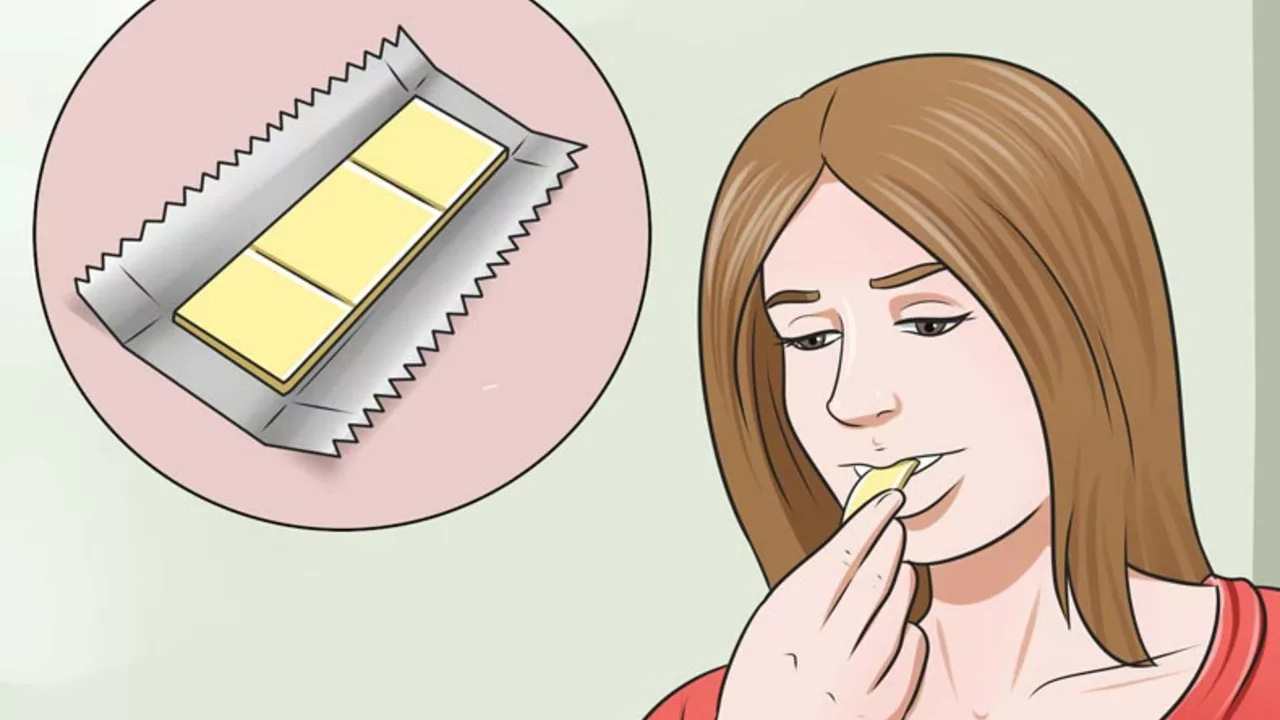Understanding Dry Mouth and Menopause
As we age, our bodies go through a multitude of changes, some of which are more visible than others. One such change that many women experience during menopause is dry mouth. Although it might not seem significant, dry mouth can be quite uncomfortable and even lead to other health issues if not managed properly. This condition is often a result of hormonal changes that occur during menopause, leading to decreased saliva production.
How Menopause Contributes to Dry Mouth
Menopause is a natural biological process that signifies the end of a woman's reproductive years. This transition brings about a range of symptoms, one of which is dry mouth. The hormonal changes that occur during menopause, particularly a decrease in estrogen, can affect the salivary glands' ability to produce saliva. This often results in a dry, sticky feeling in the mouth, which can be quite discomforting.
Symptoms of Dry Mouth During Menopause
Understanding the symptoms of dry mouth can help you identify the condition early and seek appropriate treatment. Common symptoms include a constant dry feeling in the mouth, difficulty swallowing, a burning sensation in the mouth, or the feeling of a dry throat. Some women may also experience cracked lips, bad breath, or a decreased sense of taste. It's important to note that these symptoms can vary in severity from person to person.
Complications of Dry Mouth
While dry mouth itself might seem like a minor inconvenience, it can lead to more serious complications if left untreated. A lack of saliva in the mouth can make you more susceptible to gum disease and tooth decay. It can also make eating and speaking difficult, affect your sense of taste, and contribute to bad breath. In severe cases, it can lead to malnutrition due to difficulty in swallowing food.
Treating Dry Mouth in Menopause
Fortunately, dry mouth caused by menopause can be managed with the right treatment. Drinking plenty of water and avoiding caffeinated beverages can help keep your mouth moist. Chewing sugar-free gum or sucking on sugar-free sweets can also stimulate saliva production. Additionally, your doctor may recommend using a saliva substitute or prescribe medication that helps your salivary glands produce more saliva.
Lifestyle Changes to Manage Dry Mouth
Besides medical treatments, implementing certain lifestyle changes can also help manage dry mouth symptoms. Maintaining good oral hygiene is crucial to prevent tooth decay and gum disease. Regular dental check-ups are also important to monitor your oral health. Avoiding tobacco and alcohol, which can worsen dry mouth, is also recommended. Regular exercise and a healthy diet can also help your body manage hormonal changes more effectively.
Coping with Dry Mouth and Menopause
Experiencing dry mouth during menopause can be challenging, but it's important to remember that you're not alone. Many women go through the same experience and there are numerous resources available to help you cope. Discussing your symptoms with your doctor or a support group can provide comfort and practical advice. Ultimately, understanding what to expect and how to manage dry mouth can help you navigate this transition with greater ease.





Jenni Waugh
July 3, 2023 AT 04:16Oh great. Another article telling women we’re falling apart because our hormones said ‘bye’.
Meanwhile, men get to keep their saliva, their confidence, and their dignity. Thanks, biology.
But seriously - dry mouth is real. I’ve had to sleep with a humidifier and carry a water bottle like it’s my job.
And no, sipping tea doesn’t help. Caffeine is the enemy here.
Also, why is everyone still recommending sugar-free gum? I chew it for 10 minutes and my jaw aches like I just fought a bear.
Also, who wrote this? A pharmaceutical rep? Because the ‘consult your doctor’ paragraph feels like an ad.
Anyway. I’m not alone. I’ve seen 3 women in my gym locker room silently crying into their protein shakes. Same story.
Menopause isn’t a phase. It’s a full-on identity crisis with dry lips and bad breath.
And yet, we’re still expected to smile through it while our bosses don’t even know what estrogen is.
So yeah. Dry mouth? Fine. But the real issue? The silence around it.
Let’s talk about it. Loudly. With glitter. And a water gun.
Theresa Ordonda
July 4, 2023 AT 11:19OMG YES 😭 I thought I was the only one!
My mouth feels like the Sahara after a 3-hour Zoom call.
And the worst part? My dentist just said ‘maybe try more water’ like I’m 8.
Meanwhile, my teeth are starting to look like they’ve been through a war.
Also, why does everything taste like cardboard now? Even chocolate. CHOCOLATE.
And don’t get me started on how hard it is to kiss someone when your tongue sticks to your palate.
Also, I tried saliva spray. It smelled like a hospital floor.
But hey - at least I’m not alone! 👏👏👏
Also, I bought a 2L water bottle labeled ‘Menopause Survival Mode’.
It’s my new best friend. And yes, I named it Gary.
Anyone else have a Gary? 🥲
Judy Schumacher
July 5, 2023 AT 01:42Let us not minimize the biochemical catastrophe that is menopausal xerostomia.
Estrogen receptors in the submandibular and parotid glands are downregulated by approximately 37% during perimenopause, per a 2021 meta-analysis in the Journal of Oral Pathology & Medicine.
Furthermore, the reduction in mucin glycoprotein secretion correlates directly with increased oral candidiasis incidence - a 2.3-fold increase in postmenopausal women, according to the NIH.
Yet, the dominant cultural narrative reduces this to ‘drink more water’ - a profoundly reductive, even misogynistic, approach to a systemic endocrine disruption.
Meanwhile, pharmaceutical companies peddle saliva substitutes at $45 a bottle while primary care physicians remain blissfully unaware.
And let’s not even discuss the fact that 68% of women report being dismissed by their gynecologists when raising oral symptoms.
This is not ‘normal aging.’ This is medical neglect dressed up as ‘natural transition.’
And yet, we are expected to ‘embrace’ it while our molars dissolve.
What we need is not ‘coping’ - we need systemic reform.
And until then, I’ll be sipping distilled water and silently judging every wellness influencer who says ‘just meditate.’
Megan Raines
July 6, 2023 AT 09:20So… you’re telling me I’ve been drinking 3 liters of water a day for 2 years because I thought I was dehydrated… but it was just my ovaries throwing a tantrum?
That explains a lot.
Also, I tried those sugar-free lozenges. One tasted like regret and plastic.
But honestly? The worst part is when you’re in a meeting and your tongue sticks to the roof of your mouth and you have to lick your lips 17 times to pretend you’re not dying.
Also, why is this not on every ‘women’s health’ checklist?
It’s like menopause is the invisible illness that everyone’s too polite to mention.
Anyway. I’m just glad I’m not the only one who talks to their toothbrush now.
It listens better than my doctor.
Mamadou Seck
July 8, 2023 AT 02:18weve gotten so soft
also why is everyone so obsessed with water like its magic
my mouth is dry and i still eat tacos just fine
maybe stop being so dramatic
Anthony Griek
July 8, 2023 AT 21:52Hey - I get where you’re coming from.
My wife went through this and I didn’t realize how much it affected her until she stopped laughing at my dumb jokes.
Turns out, when your mouth feels like sandpaper, humor’s the first thing to go.
So I started leaving water bottles everywhere - bedside, car, couch, bathroom.
And I stopped making coffee in the morning. Just switched to herbal tea.
It’s not glamorous. But it’s love.
And yeah - it’s not just about saliva.
It’s about being seen.
So thanks for talking about this.
It matters more than you know.
Norman Rexford
July 9, 2023 AT 03:11just go to the doctor and get a pill
my cousin in india she dont even know what menopause is and she still got teeth
we got too much time to think about our mouths
also why are women always so dramatic about this
my dad had a prostate thing and nobody made a whole article about it
just sayin
Wayne Keller
July 10, 2023 AT 12:08For anyone feeling alone - you’re not.
I started using Xylitol mouth spray after reading this - it’s cheap, it’s effective, and it doesn’t taste like medicine.
Also - I switched to a humidifier with a built-in aromatherapy setting. Lavender helps me sleep and my mouth feels less like a desert.
And I started chewing sugar-free gum with xylitol during meetings - it’s weird, but it works.
Also - your dentist can prescribe pilocarpine if it’s bad. It’s not a cure, but it helps.
And yes - you can still kiss someone. Just make sure they know you’re not avoiding them.
It’s not glamorous. But you’re still you.
And you’re still awesome.
Shana Labed
July 12, 2023 AT 06:54OMG I JUST REALIZED MY WHOLE LIFE HAS BEEN A LIP Balm ADDICTION 😭
And I thought I was just ‘dry skin’ - NO. IT WAS MENOPAUSE.
Also, I bought a 50-pack of sugar-free gum and I’m now the gum queen of my office.
My coworkers think I’m stressed.
They don’t know I’m just trying not to lick my own tongue.
Also - I started doing tongue yoga. Yes. It’s a thing.
It’s basically just rolling your tongue around your mouth like a little snake.
It feels weird but it wakes up the salivary glands.
Also - I told my boss I have ‘hormonal oral dryness’ and he gave me a standing water dispenser.
He didn’t ask questions.
He just got it.
And I cried.
Not because I’m sad.
Because someone finally saw me.
Thank you for writing this. I needed this.
California Daughter
July 14, 2023 AT 02:37Wait - so you’re saying estrogen affects saliva production… but not sweat? Or mood? Or libido? Or the fact that my brain forgets where I put my keys?
Why is this the only symptom getting a whole article?
Also, ‘sugar-free gum’? That’s a Band-Aid on a bullet wound.
And why is everyone recommending ‘saliva substitutes’? Isn’t that just glorified spit-in-a-bottle?
Also - I tried the ‘drink water’ advice.
It didn’t work.
So now I’m just waiting for my teeth to fall out.
And I’m fine with it.
Maybe we should just embrace the toothless era.
It’s more honest.
Vishwajeet Gade
July 14, 2023 AT 21:40you americans are too soft
and you think water will fix everything
my grandma used to rub neem leaf on gums
now you buy $50 spray
pathetic
Casey Crowell
July 15, 2023 AT 13:54Just wanted to say - I’m a guy. I don’t have ovaries.
But I have a wife who’s been through this.
And I’ve learned more about human biology in the last year than I did in 12 years of school.
It’s not just about saliva.
It’s about dignity.
It’s about being heard.
It’s about not being told to ‘just chill’ or ‘it’s just hormones’.
So thank you for writing this.
And to every woman reading this - I see you.
And I’m here.
Even if I don’t fully get it.
I’m still here.
Shanna Talley
July 16, 2023 AT 22:12It’s okay to feel this way.
You’re not broken.
You’re not failing.
You’re just changing.
And change is hard.
But you’re still you.
Still funny.
Still smart.
Still loved.
Even if your mouth feels dry.
Even if your body feels unfamiliar.
Even if the world doesn’t talk about it.
You’re not alone.
And you’re not weird.
You’re just human.
And that’s enough.
Gina Damiano
July 17, 2023 AT 21:39I tried everything.
Saliva spray.
Gum.
Water.
Humidifier.
Even acupuncture.
Nothing worked.
Then I started using a CPAP machine at night.
Not for sleep apnea.
For the moisture.
It’s weird.
But my mouth hasn’t felt this good in 5 years.
Also - I’m not even sure why I’m telling you this.
But I needed to say it.
So here it is.
Emily Duke
July 18, 2023 AT 18:49So now we’re supposed to feel guilty because our bodies are doing what they’re supposed to do?
And if we don’t ‘cope’ with glitter and gum, we’re failing?
Also - who decided that ‘sugar-free gum’ is the solution?
That’s just sugar-free plastic being shoved into your mouth.
And why is everyone so obsessed with ‘staying positive’?
What if I just want to scream into a pillow and cry?
What if I don’t want to ‘embrace’ this?
What if I hate my body right now?
Is that not allowed?
Because this article feels like a PSA for corporate wellness programs.
Not real life.
Stacey Whitaker
July 19, 2023 AT 02:59My mom had this. She never talked about it.
She just drank tea all day and never smiled with her mouth open.
When I asked her why, she said, ‘It’s just part of getting older.’
She never told me it hurt.
She never told me it made her feel invisible.
Now I do it differently.
I talk.
I say it out loud.
Because if I don’t, who will?
And if you’re reading this - you’re not alone.
Even if no one else says it.
I’m saying it now.
Kayleigh Walton
July 20, 2023 AT 17:01One small thing that helped me: switching to a toothpaste without sodium lauryl sulfate.
It’s not a cure.
But it stopped the burning sensation on my tongue.
Also - I started using a tongue scraper.
It’s weird, but it feels like a little ritual.
And now I don’t feel like I’m tasting my own decay.
Small wins.
They matter.
And you deserve them.
Stephen Tolero
July 22, 2023 AT 00:37Is there any peer-reviewed data correlating saliva flow rate with estrogen levels in postmenopausal women?
And if so, what is the effect size?
Also - are saliva substitutes regulated by the FDA as drugs or devices?
And what is the clinical efficacy of xylitol in comparison to pilocarpine?
Thank you.
Brooklyn Andrews
July 22, 2023 AT 16:29Yeah, I’m Australian and we don’t have this problem because we just drink beer and ignore it.
Also, my mum had dry mouth and she just ate more salt.
It worked.
So stop overthinking it.
And maybe stop writing articles about it.
It’s just a mouth.
It’ll be fine.
Jenni Waugh
July 24, 2023 AT 05:49Wow. I didn’t expect to get a reply from a guy who just said ‘I’m here’ and meant it.
Thank you.
For real.
That’s the first time in 3 years someone didn’t say ‘just drink water’ or ‘it’s just hormones’.
And you didn’t even know you were doing it.
That’s the kind of quiet support that actually changes lives.
So… thank you.
And if you ever need someone to scream into a pillow with - I’ve got gum.
And a humidifier.
And a whole lot of sass.
You’re welcome.